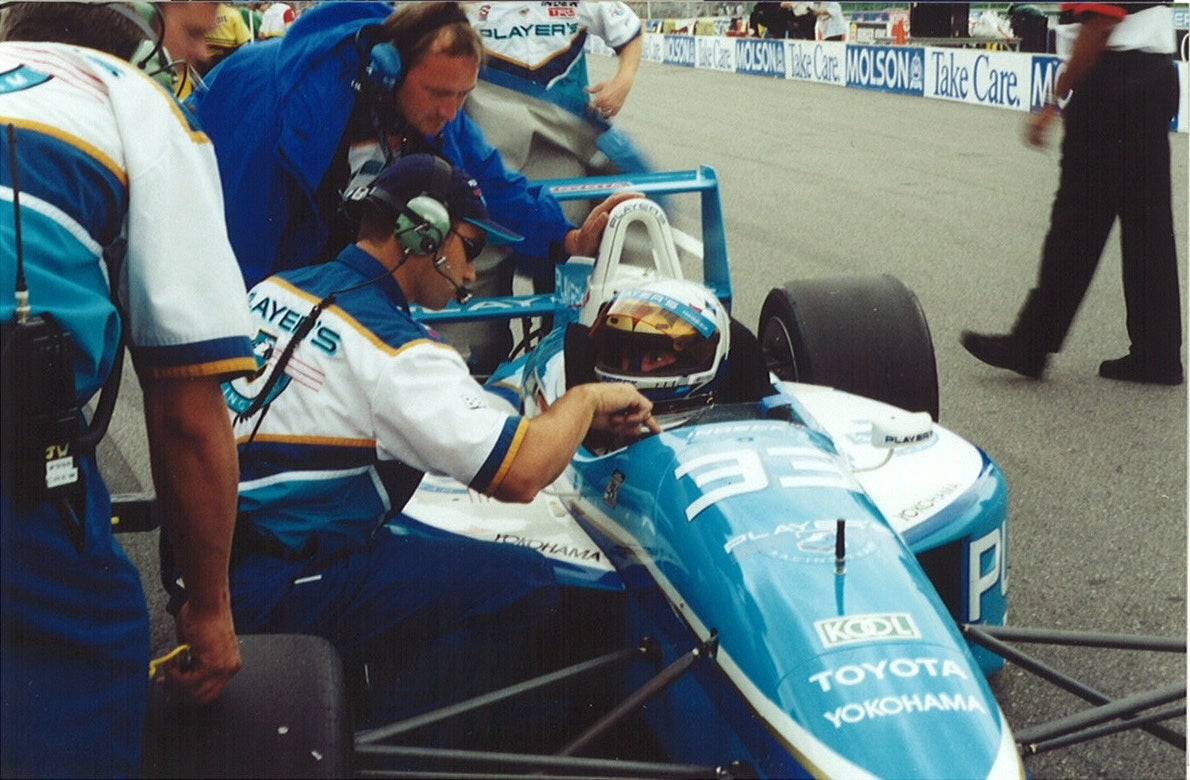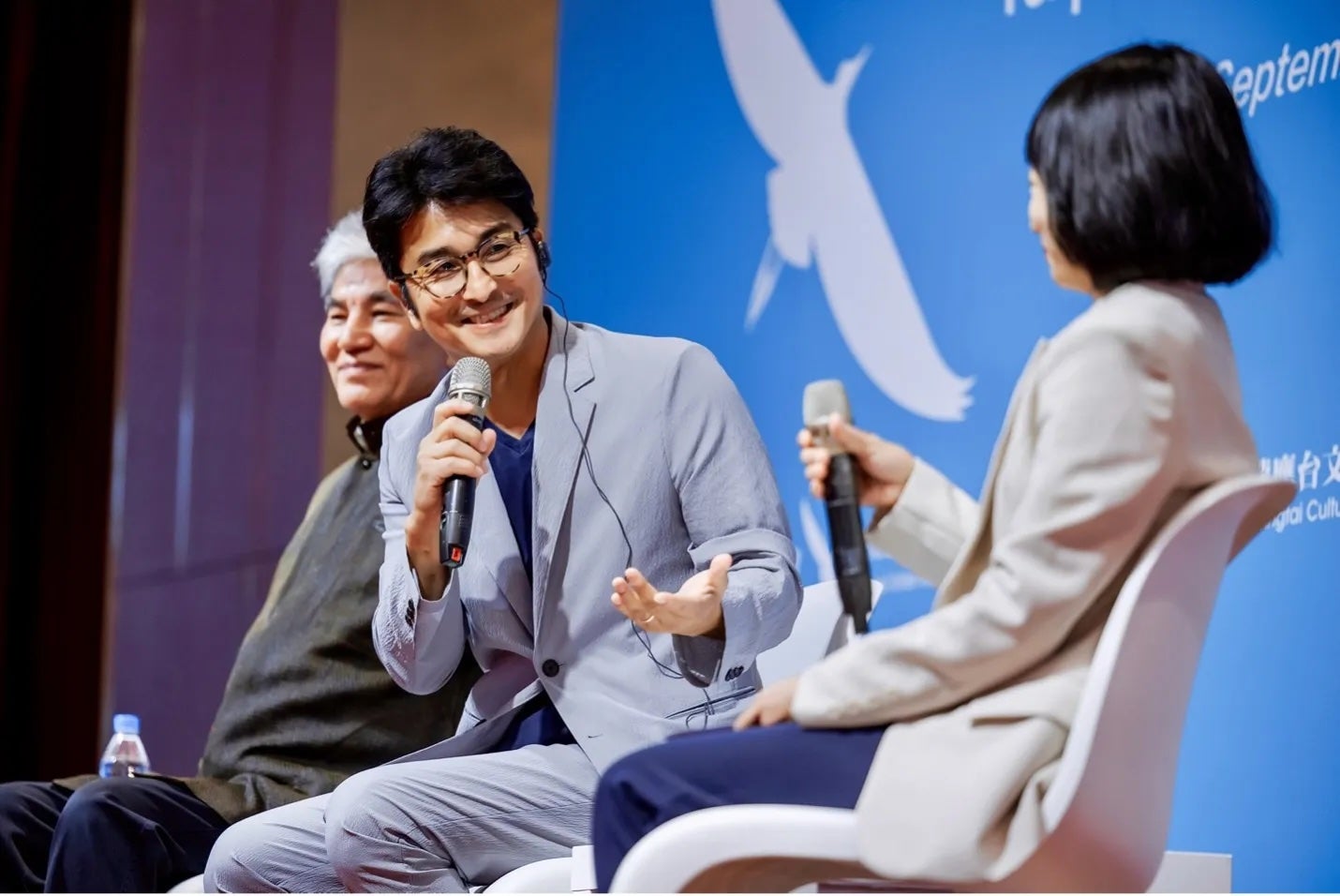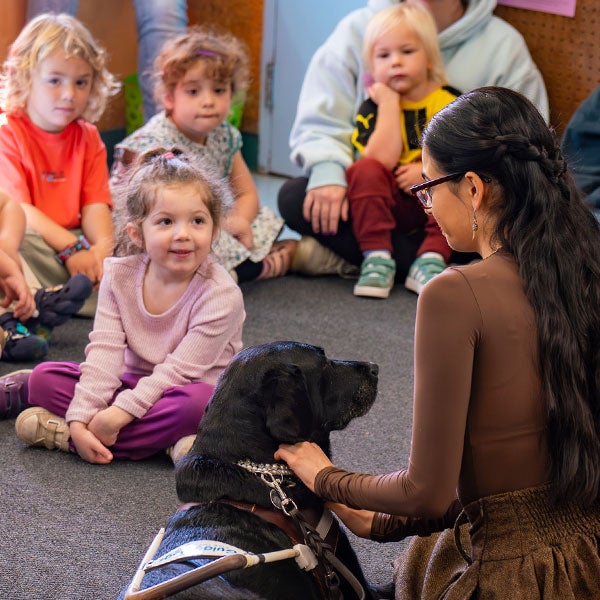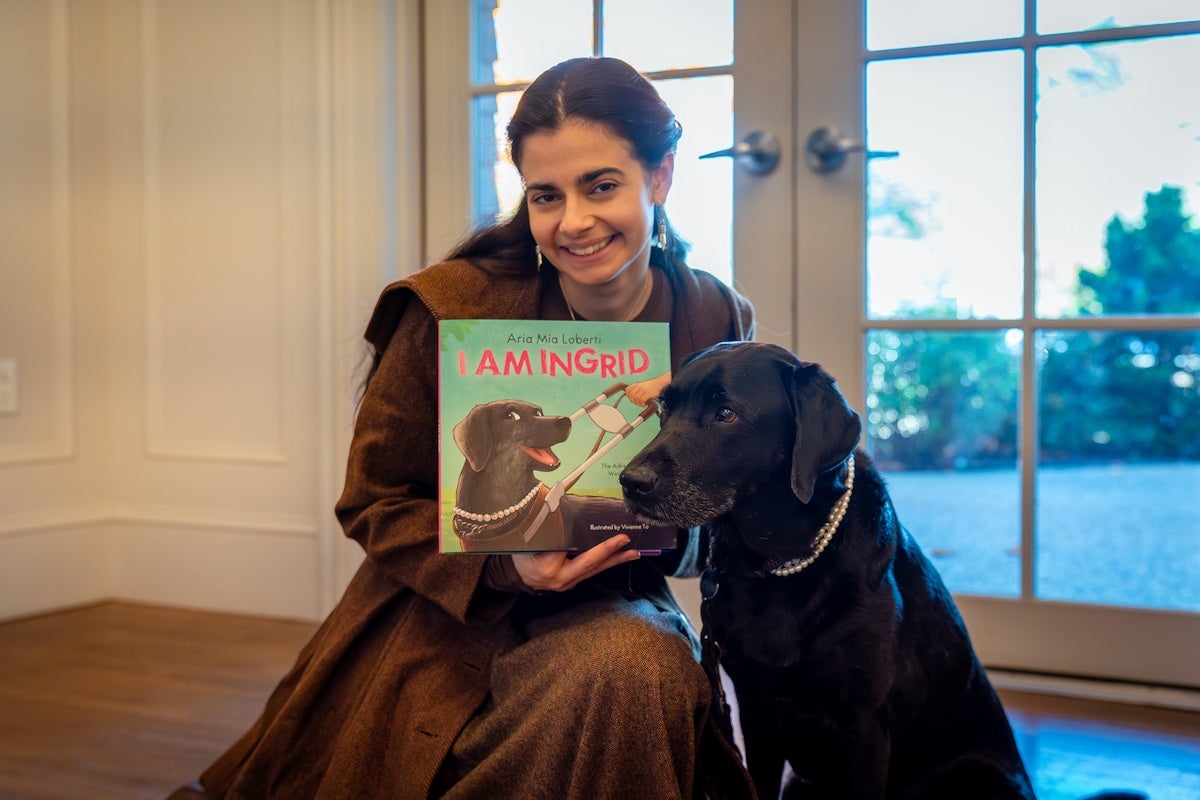From Track to Classroom: How one URI professor found his way from F1 to Engineering Education
KINGSTON, R.I. – Oct. 20, 2025 – This summer Apple’s blockbuster F1 movie defied expectation, earning more than $600 million at the box office against a $240 million budget and becoming Brad Pitt’s highest grossing film. Billed as a movie about an F1 legend who is coaxed out of retirement to mentor a young hotshot driver, a similar story about mentorship can also be told about one University of Rhode Island professor.
While not mentoring young drivers, Andrew Borme, who lives in North Kingstown, is shaping young minds as an assistant teaching professor in URI’s College of Engineering. But beyond that, what connects Borme and Sonny Hayes (Brad Pitt), is Borme’s storied history with racing. His background is in mechanical engineering with a focus on aerodynamics— and though not a driver, Borme has spent years behind the scenes with elite racing teams. He worked as a race engineer for the BMW-Sauber Formula 1 team and Penske’s Racing Car team, plus the Toyota Motorsports F1 team and Williams F1 team as a reliability engineer. Over the course of his career, the teams of which Borme has been a part of have celebrated multiple victories at the Indianapolis 500.

But his career in motorsports has been anything but straightaway. After earning his undergraduate degree Borme figured he’d work in the aerospace industry. Inspired by his grandfather, an aviator, and born in Italy, he saw airplanes and rocket ships as his future.
“I had this great romantic image of what the aviation industry was going to be,” says Borme. “But quickly, I realized it’s just so massive as an industry and that I was just a tiny little piece.”
That’s when he decided to take a turn. He raced back to school – moving to California – and obtained his master’s degree. But he got into motorsports by happenstance. He had always been a fan of racing but didn’t realize he could make a career out of it.
“I was at a university in California and saw a flyer for a race team that was looking for a junior CAD designer part-time,” says Borme. “I answered the ad and got the job, which turned out to be with Nissan’s factory race team in North America.”

What attracted Borme to motorsports was the immediacy of the work.
“I was immediately hooked because it was what I call instant gratification engineering,” says Borme. “You design it, analyze it, produce it in several weeks, and then it goes on the car.”
With his background Borme did a lot of work on the aerodynamics of F1 cars and how it impacted their performance on race day.
“The character of a car and how it handles and performs is very much driven by the character of the aerodynamics,” he said.
Though modifications to cars were often small and based on minor rule changes, Borme saw many times how a new car part could be produced in a couple of weeks—ultimately improving the vehicle’s performance. Changes could include modifications to the height of a chassis or the shape of the rear wing.
“When the car moves and changes ride height or goes through a turn the aerodynamics change — you’re affecting how the airflow goes over the car,” said Borme.
After more than 20 years in the motorsport industry, Borme was ready to ease off the gas and look for a new challenge.
Borme calls URI his home but the first stop in his academic career was in a major American motor sport city, Indianapolis. He started working for a university there because they had a motorsports engineering program.
Having spent years as a race engineer, Borme now brings that same sense of urgency and design precision into the classroom. He uses his real world experience with how fast parts can be produced, tested and ultimately used on race day, in the classroom.
Borme says something that he continues to teach his students is project management and understanding timelines. “The first thing I tell them is work backwards from a due date. As soon as they do that, they’ll find that they should have started yesterday,” he says.
Now well into his second career, questions about his racing past still come up. The most frequent: Has he ever driven a Formula 1 car?
The answer: No.
He explains that F1 drivers routinely experience lateral forces of 3 to 4 g’s while cornering—something the average person wouldn’t handle well. While he may have helped build F1 cars, when it comes to taking the wheel, Borme is happy to leave that to the professionals.
“An amateur would crash instantly because you’re talking about a car that weighs less than a Miata but has about 1000 horsepower,” he says.
However, Borme’s retirement from motorsports isn’t necessarily the end of the story. He says he hopes to possibly start a race team at URI in the future.
Latest All News
- URI launching new Environmental Arts and Humanities bachelor’s degreeKINGSTON, R.I. – Oct. 29, 2025 – Citing a need for writers, thinkers and artists to help clarify complex environmental issues and the science surrounding them, the University of Rhode Island is introducing a new Environmental Arts and Humanities bachelor’s degree. The University’s new 33-credit degree program will equip students with a more holistic approach […]
- Yoshitaka Ota awarded inaugural Taiwan Peace FellowshipKINGSTON, R.I. – Oct. 29, 2025 – University of Rhode Island Marine Affairs Professor and Director of Nippon Foundation Ocean Nexus Yoshitaka Ota was recently awarded the Taiwan Peace Fellowship, a fellowship that brings together leaders and scholars from around the world in Taiwan to gain a deeper understanding of the country’s historical and cultural […]
- All about IngridAria Mia Loberti '20 visited the URI Child Development Centers to teach preschoolers about a guide dog's impressive skills and special relationship with their human, the subject of her book, I Am Ingrid.
- Aria Mia Loberti teaches URI preschool students impressive skills, special relationship of a guide dogKINGSTON, R.I. — Oct. 28, 2025 — How can your dog tell you what the letters on the buildings’ signs are? Why does your dog wear a special harness? Why do dogs poop and pee? University of Rhode Island graduate, actor, advocate, and newly published author Aria Mia Loberti ’20 patiently fielded myriad questions from […]
- Study by URI physics professor may lead to improved networked quantum sensingKINGSTON, R.I. – Oct. 28, 2025 – Could global positioning systems become more precise and provide more accurate details on distances for users to get from point A to point B? A study by University of Rhode Island assistant physics professor Wenchao Ge in collaboration with Kurt Jacobs, a physicist of quantum tech with the […]
- URI offers new online certificate in Community PlanningKINGSTON, R.I. – Oct. 27, 2025 – There is increasing workforce demand for community planners who are equipped to address complex environmental, social, and economic problems, and the University of Rhode Island’s Department of Landscape Architecture has designed a flexible new program to prepare both working professionals and current students to meet those needs. Offered […]













